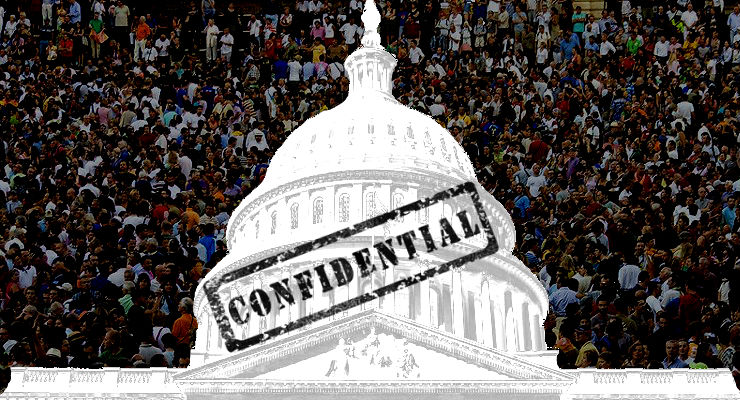From ProPublica by Derek Willis, ProPublica, and Paul Kane, The Washington Post:
Today’s legislative branch, far from the model envisioned by the founders, is dominated by party leaders and functions as a junior partner to the executive, according to an analysis by The Washington Post and ProPublica.
For more than 200 years, Congress operated largely as the country’s founders envisioned — forging compromises on the biggest issues of the day while asserting its authority to declare war, spend taxpayer money and keep the presidency in check.
Today, on the eve of a closely fought election that will determine who runs Capitol Hill, that model is effectively dead.
It has been replaced by a weakened legislative branch in which debate is strictly curtailed, party leaders dictate the agenda, most elected representatives rarely get a say and government shutdowns are a regular threat due to chronic failures to agree on budgets, according to a new analysis of congressional data and documents by The Washington Post and ProPublica.
The study found that the transformation has occurred relatively fast — sparked by the hyperpolarized climate that has enveloped politics since the 2008 election of President Barack Obama and the subsequent dawn of the tea party movement on the right. During that time, as the political center has largely evaporated, party leaders have adhered to the demands of their bases, while rules and traditions that long encouraged deliberative dealmaking have given way to partisan gridlock, the analysis found.
While few of these changes made headlines, taken together they have fundamentally altered the way Congress operates — and morphed this equally powerful branch of government into one that functions more as a junior partner to the executive, or doesn’t function at all when it comes to the country’s pressing priorities.
Immigration — a major flashpoint in recent elections — has been formally debated only a few days in Congress over the past five years with no resolution. Efforts to reach a bipartisan agreement on health care markets — an issue both parties considered urgent — stalled.
And in July, Senate Majority Leader Mitch McConnell, R-Ky., declined to allow debate on a proposal that sought to limit foreign influence in U.S. elections, warning colleagues such a bill could become a “two-week ordeal,” according to the sponsor of one proposal, Sen. Marco Rubio, R-Fla.
Instead, the Senate spent most of the next three months confirming President Donald Trump’s judicial and administrative nominees.
“That’s why I left. You couldn’t do anything anymore,” said Tom Coburn, the former Oklahoma Republican senator who resigned in 2014.
Tuesday’s elections could bring big changes to the Capitol, particularly if Democrats win control of the House and launch aggressive investigations of the Trump administration, but there is little evidence that the leaders of either party are prepared to rebuild the old system.
“If this continues, they’re going to evolve, or devolve, into irrelevancy very quickly,” said former Senate Majority Leader Tom Daschle, D-S.D.
The election of Obama set off partisan moves, and then countermoves, that drove the institution into ideological corners — followed by the election of Trump and a reverse set of moves.
To document this transformation, the Post and ProPublica analyzed publicly available data from the House and Senate, committees, and members of Congress, dating back several decades. Some institutional decline began 25 years ago, but the study showed that the steepest institutional drop came in just the past 10 years.
Read the rest of the article here.

Leave a Reply